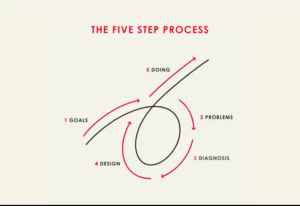Podcast: Play in new window | Download (Duration: 16:29 — 15.1MB) | Embed
Edward Marshall stated “…speed happens when people…truly trust each other.
Jack Welch stated if you are not fast, you’re dead.
So what is trust? Simply stated, trust is confidence. The opposite is suspicion. When you distrust people you are suspicious of their integrity, agenda, capabilities, and their track record. It’s that simple!
In recent studies we see that organizational trust has eroded. Consider…
- Only 51% of employees trust senior management
- Only 35% of employees believe their leaders act with honesty and integrity
- Over the past 12 months 76% of employees have observed illegal/unethical conduct which if exposed would public trust.
The Economics of Trust
The Covey Institute suggests that if Trust has eroded this equals slow speed of the team which equals costs that drive upward. Trust is the one item that turns around the equation to faster speed of the team and lower cost ratios.
↓ TRUST = ↓ SPEED ↑COSTS
↑TRUST = ↑SPEED ↓COSTS
Consider what Stephen Covey calls the five waves of trust.
Trust has a ripple effect starting with yourself and then moving out to society. The key is to understand the inter-relatedness of all five waves.
Self Trust
We have confidence in ourselves to achieve goals, keep commitments, to walk the walk.We possess the ability for high competence in credibility, judgment, and influence.
Relational Trust
We are consistent in our behaviors. The key here is the ability to generate trust within all contributors of the team enhancing relationships.
Organizational Trust
This level is where leaders can generate trust. The key here is alignment which has to do with structures, systems and symbols of organizations. This is to stop organizational tax that so quickly infiltrates.
Market Trust
The key here is reputation. This has everything to do with your brand corporately and personally. The trustworthiness of your brand determines public buy-in to your goods and services
Societal Trust
The key focus is contribution. How are you giving back into the community that you exist. This inspires others to give back as well.
LINKS
Shepherds Advantage Leadership Podcast is now on iTunes – SUBSCRIBE
Shepherds Advantage Leadership Podcast is now on Stitcher – SUBSCRIBE
FREE GIFT – “The Art of Balancing Candor With Care” – Click on the icon at the bottom of the page
Executive Coaching Service– Private message me for details on this customizable service
Music: “Gratitude Mood” by David Arivett. You can learn more about his music by clicking on his name. THANKS DAVID!




